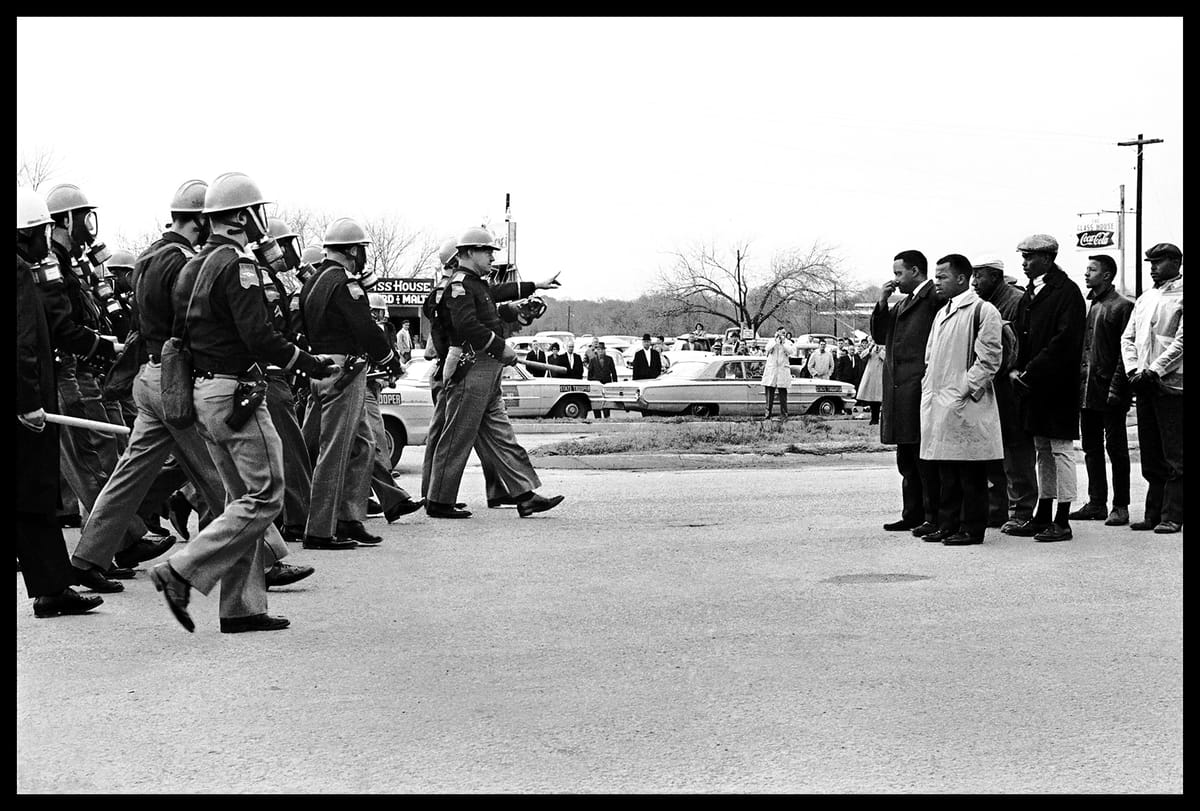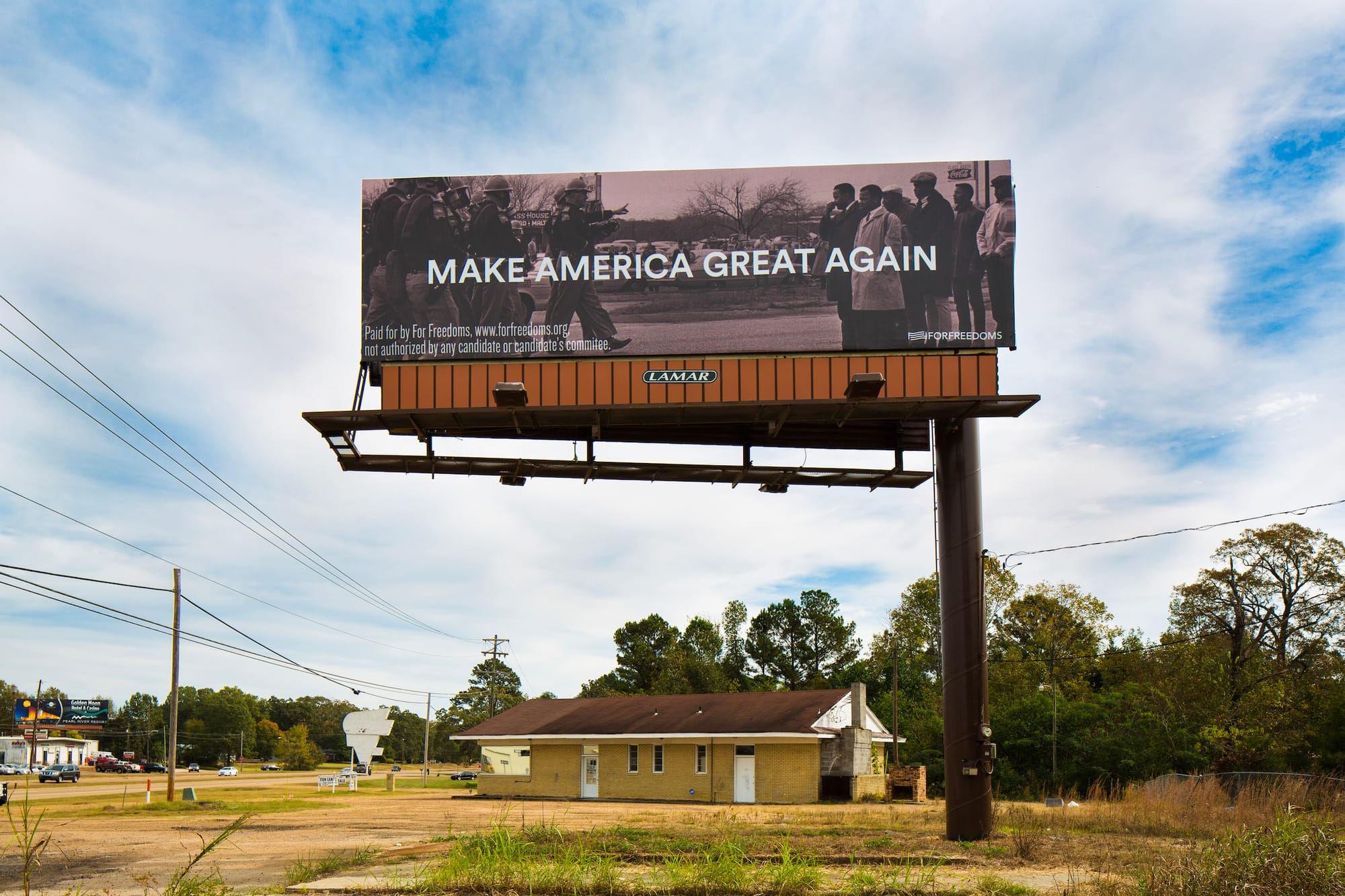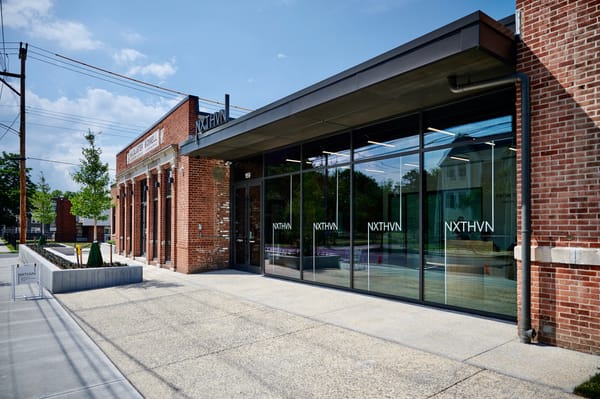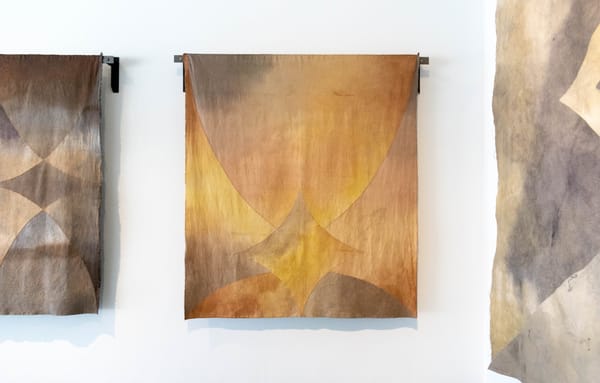Southern Poverty Law Center Backs Removal of For Freedoms Billboard
The billboard’s use of a MAGA slogan over an image from Selma's Bloody Sunday "disrespects John Lewis’ legacy and contributions to the Civil Rights Movement,” said the nonprofit.

The Southern Poverty Law Center (SPLC), a civil rights legal advocacy nonprofit headquartered in Montgomery, Alabama, declared its support of Mayor Steven L. Reed’s call to remove a billboard designed by the arts collective For Freedoms last week.
Installed ahead of an exhibition of works by photographer Spider Martin at the Montgomery Museum of Fine Arts, the billboard artwork featured Martin's famous image “Two Minute Warning” (1965). The photo captured Alabama state troopers charging toward Hosea Williams and John Lewis on Bloody Sunday, when a police mob attacked hundreds of marchers in Selma advocating for voting rights. In For Freedoms’s design, the image is overlaid with the Trump campaign slogan “Make America Great Again."
A spokesperson for the mayor's office said that the billboard was posted along the I-85 highway in Montgomery but could not confirm its exact location.
Tafeni English-Relf, director of the SPLC's Alabama State Office, said in a statement that the slogan aims to “undo the progress Black Americas marched and died for" and that its inclusion in the image "disrespects John Lewis’ legacy and contributions to the Civil Rights Movement.”
Reed, a Democrat who became the Montgomery's first Black mayor in 2019, announced his decision to request the billboard's removal in an X post on Thursday, January 30, on the grounds that the billboard “politicized” an image of Bloody Sunday, a “pivotal moment” in American history. The announcement followed several articles about the billboard in the conservative news outlet 1819 News.

English-Relf noted in the statement that the original For Freedoms design was created in 2016 and installed in Pearl, Mississippi, where it "continues to spark conversation."
"Now, the discussion has shifted from a historical and political one to a debate over intentionality. No one wants that. This recent billboard may have been well-intentioned, but meaningful conversations about race, injustice and the ongoing fight for civil rights cannot be left to inference alone," English-Relf wrote.
For Freedoms has not yet responded to Hyperallergic’s most recent request for comment. Co-Executive Director Woo said in a previous statement that the group “understand[s] the pressures that cultural institutions are under right now.”
Co-founder Eric Gottesman said last week that the mayor’s decision to remove the artwork was a “clear act of censorship," while Reed defended the move as an “exercise in the city’s discretion over its commissioned materials.”
On Monday, February 3, the National Coalition Against Censorship emailed a letter to the mayor's office stating that his request to remove the billboard raised "serious First Amendment Concerns."
The letter said that while Reed removed the design because he believed it wrongfully politicized the Selma marches, others may have appreciated the parallels the billboard drew between civil rights struggles and current events.
"As a public official, you cannot discriminate against one point of view by siding with another and demanding the removal of a work which you find disagreeable," wrote Elizabeth Larison, director of NCAC's Arts and Culture Advocacy Program. "We urge you to rectify your statement, apologize to the artists, and support the MMFA in reinstalling the billboards so they may be on view per the predetermined agreement."
Tracy Martin, daughter of Spider Martin, told Hyperallergic that she had given permission to For Freedoms Co-Founder Hank Willis Thomas to use the iconic photograph as part of an ongoing collaboration. She disagreed with the mayor's decision, calling it a “violation of freedom of speech.”
“These boards ask the question: When was America great?” Martin said in a statement to Hyperallergic last week. “The MAGA slogan has been clear for many years, and as far as we know, the person who coined it doesn’t think America is great now but rather that it was great during some other time in the past.”
Editor's note 2/4/25 5:19pm EST: This article was updated with a statement from the NCAC.





